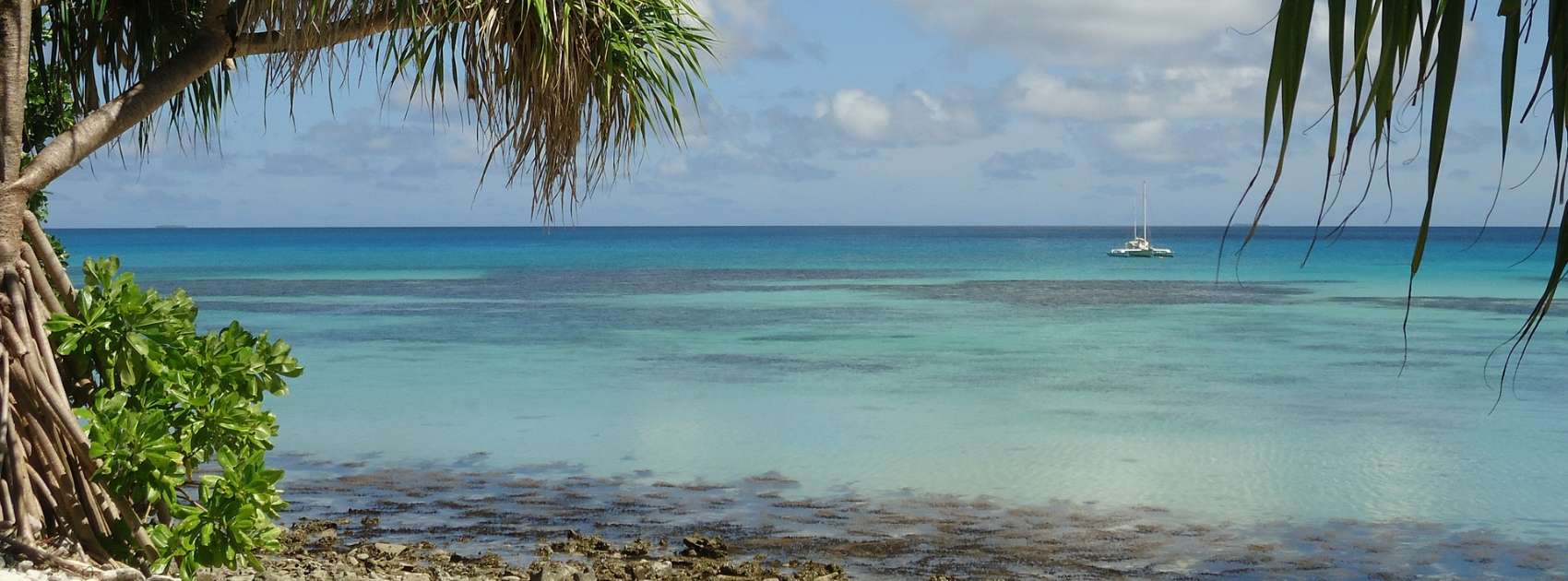Tuvalu
As a least-developed country (LDC), Tuvalu is a beneficiary of the EU's "Everything but Arms" (EBA) arrangement. The World Bank classifies Tuvalu an upper middle-income economy with a per-capita income of $6,345 in 2023. The country was identified as eligible for LDC graduation in 2012, but the decision has been deferred given its status as a vulnerable island nation. EU imports from Tuvalu amounted to about €404 thousand in 2024. Given the low export amounts, the country does not make use of EBA preferences.
What is the EBA?
The EBA arrangement covers all LDCs as classified by the United Nations. This arrangement enables duty-free and quota-free access for all products originating in LDCs except for arms and ammunition. Unlike beneficiaries of the Standard GSP and GSP+, LDCs are not excluded from the scheme if they benefit from other preferential arrangements or agreements with the EU.

9.6k (2024)
Population
Parliamentary Democracy under a Constitutional Monarchy
Government
3.9% (2024)
GDP Growth
1.2% (2024)
Inflation
$ 0.1B (2023)
GDP
Facts about Tuvalu's economy
Island Economy
Tuvalu is an island economy located in the South Pacific and consists of in total nine coral atolls. Despite limited availability of arable land, about 75% of the population are involved in agriculture and subsistence farming.
Export Products
Tuvalu's exports are dominated by the fish industry. Main export products include frozen fish (tuna, skipjack, albacore, bonito, etc.).
Trade Partners
Tuvalu's most important trading partners in 2024 were Singapore, Australia and New Zealand. The Philippines was the largest export market (50% of total exports), followed by South Korea (24%). But because of the small export volumes, the main destinations vary strongly from year to year.
Economic Structure
Subsistence farming secures the livelihood of the majority of Tuvalu's population. Only small fractions of agricultural surplus, mainly copra and fish, are being exported. The services sector, mainly driven by public services and revenues from the sale of fishing licenses, contributes the largest share to Tuvalu's GDP.
Usage of EBA Preferences
16% of the EU's total imports from Tuvalu were eligible for EBA preferences in 2024, but given the small amounts involved the country does not make use of its preferential access to the EU market.
Trade with the EU
Total trade with the EU amounted to less than €1 million in 2024.
Tuvalu and the EU
Imports from Tuvalu by product section (2024, € million)
Imports from Tuvalu over time (€ million)
TUVALU AND THE EU GSP
Economic Impact
16%
Share of Tuvalu's exports to the EU that were eligible for EBA preferences in 2024.
0%
Tuvalu did not make use of GSP preferences in 2024.
84%
Share of zero-duty imports from Tuvalu in 2024. Most imports are duty-free under normal EU tariffs.
Preference utilisation and export diversification
EU imports from Tuvalu (€ million)
Preference utilisation (%) vs. total eligible imports (in € million)
Overall EU imports from Tuvalu have been fluctuating considerably. Between 2017 and 2020 fluctuations can be mainly attributed to varying levels of coin exports, which form an important contribution to government revenues. Coins, however, already benefit from zero most-favoured-nation duties and are not traded under the EBA. In fact, Tuvalu has not made use of EBA preferences at all in recent years, despite almost half of its exports to the EU being eligible. However, only products from three product sections could take advantage of the duty-free access to the EU market, namely machinery, metals, and instruments.
The largest product sections under EBA (€ million, 2024)
With very limited exports to the EU, Tuvalu did not use any preferences in 2024.
SUSTAINABLE DEVELOPMENT
As a beneficiary of the EBA, Tuvalu is not required to ratify any conventions to be able to benefit from preferential access to the EU market. Tuvalu has ratified three of the seven core UN conventions on the protection of human rights listed in the GSP Regulation and one of the eight fundamental ILO labour rights conventions. Most recently, it ratified the Convention Against Torture in 2024. Additionally, Tuvalu has ratified six out of the eight listed conventions on the protection of the environment and the UN Convention against Corruption.
Core international conventions on human rights and labour standards
Ratified
- Convention on the Elimination of All Forms of Discrimination Against Women (1981)
- Convention Against Torture and other Cruel, Inhuman or Degrading Treatment or Punishment (1987)
- Convention on the Rights of the Child (1990)
- Convention concerning the Prohibition and Immediate Action for the Elimination of the Worst Forms of Child Labour, No 182 (1999)
Not Ratified
- Convention on the Prevention and Punishment of the Crime of Genocide (1948)
- International Convention on the Elimination of All Forms of Racial Discrimination (1969)
- International Covenant on Civil and Political Rights (1976)
- International Covenant on Economic Social and Cultural Rights (1976)
- Convention concerning Forced or Compulsory Labour, No 29 (1930)
- Convention concerning Freedom of Association and Protection of the Right to Organise, No 87 (1948)
- Convention concerning the Application of the Principles of the Right to Organise and to Bargain Collectively, No 98 (1949)
- Convention concerning Equal Remuneration of Men and Women Workers for Work of Equal Value, No 100 (1951)
- Convention concerning the Abolition of Forced Labour, No 105 (1957)
- Convention concerning Discrimination in Respect of Employment and Occupation, No 111 (1958)
- Convention concerning Minimum Age for Admission to Employment, No 138 (1973)
Additional Conventions
- Montreal Protocol on Substances that Deplete the Ozone Layer (1987)
- Basel Convention on the Control of Transboundary Movements of Hazardous Wastes and Their Disposal (1989)
- Convention on Biological Diversity (1992)
- The United Nations Framework Convention on Climate Change (1992)
- Stockholm Convention on Persistent Organic Pollutants (2001)
- Kyoto Protocol to the United Nations Framework Convention on Climate Change (1998)
- United Nations Convention against Corruption (2004)
EU-Tuvalu Bilateral Development Cooperation
DG INTPA
Access all info about EU-Pacific Islands Countries relations on the International Partnerships website.
